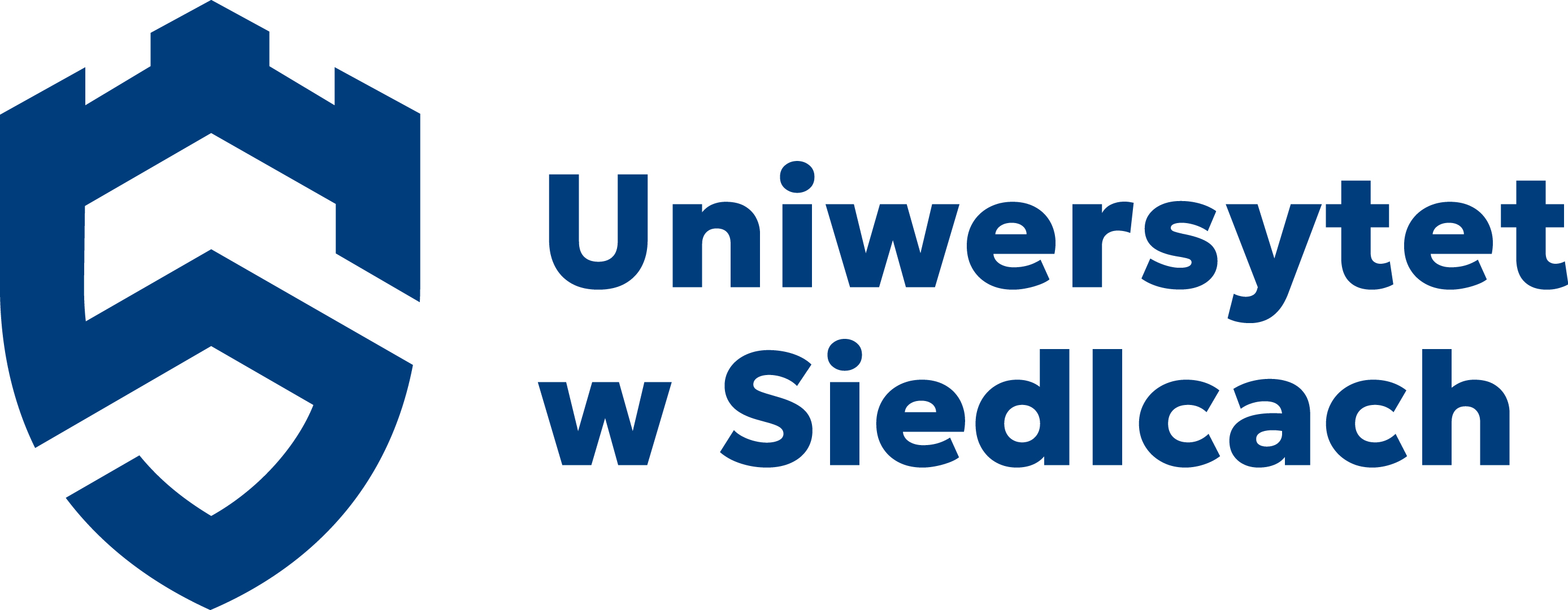
University of Siedlce
Institute of Linguistics and Literary Studies
and
University of the Balearic Islands
Faculty of Philosophy and Art
would like to kindly invite all scholars from across the Humanities to take part in the
11th Annual Siedlce Forum for Contemporary Issues
in Language and Literature
to be held online for the purpose of presenting unpublished research findings in English on November 19th-20th, 2026.
The leitmotif of the conference is:
Canonical and Noncanonical Forms
in Literature, Linguistics, Philosophy and Culture
Across disciplines, the notion of canon has long served as a stabilizing force: a set of texts, forms, concepts, or norms that define legitimacy, authority, and continuity. Yet canonical forms are never static. They are continually challenged, reinterpreted, expanded, and destabilized by noncanonical practices that emerge at the margins, in moments of crisis, or through encounters with new media, cultures, and modes of thought. The tension between canonical and noncanonical forms thus constitutes a productive dynamic at the heart of literature, linguistics, philosophy, and culture.
The conference Canonical and Noncanonical Forms in Literature, Linguistics, Philosophy and Culture seeks to explore this dynamic across historical periods and disciplinary boundaries. We invite contributions that examine how canonical forms are established, maintained, questioned, or transformed, as well as how noncanonical forms articulate alternative aesthetics, epistemologies, and modes of expression. Such forms may challenge dominant traditions, reconfigure inherited structures, or reveal overlooked voices and practices that resist easy classification.
By bringing together scholars from diverse fields, this conference aims to foster dialogue on how canonical and noncanonical forms interact, overlap, and redefine one another. We particularly welcome interdisciplinary approaches that illuminate the cultural, linguistic, philosophical, and literary implications of this distinction in both historical and contemporary contexts.
Suggested Research Areas
Literature:
- The literary canon and its boundaries
- Canonical genres and noncanonical genre formations
- Narrative structures: standard and experimental forms
- Canonical characters, plots, and motifs vs. subversive reworkings
- Intertextuality and reinterpretations of canonical texts
- Postmodernism and the Aesthetics of Fragmentation
- Identity and Subjectivity in Fragmented Narratives
- Intertextuality and Mosaic Narratives
- Marginalized literatures and alternative literary traditions
- Authorship, authority, and canon formation
- Digital Narratives and the Fragmentation of Form
- Translation and the transformation of canonical texts
Linguistics:
- Canonical and Noncanonical Forms in a Language and across Languages
- Canons in Languages for Special Purposes
- Canonical and Noncanonical Approaches in Translation Practice
- Lexicographic and Terminographic Canonical and Noncanonical Practices
- Canonical and Noncanonical Practices in Corpus Studies
- Formation of Canonical and Noncanonical Practices in Linguistics Adopting AI
- Canons in Discourse Studies across Various Genres
- Canons in Spoken Language and Deviations from them
- Standard and Nonstandard Methods in Language Learning and Teaching: Implications for the Classroom
- Linguistic Canons in Contemporary Studies
Philosophy:
- Philosophical conceptions of canonicity and normativity
- Norms, rules, and exceptions in philosophy of language
- Canonical and noncanonical meaning: reference, use, and context
- Ordinary language vs. ideal language approaches
- Philosophical perspectives on grammaticality and acceptability
- Logic, formal systems, and noncanonical structures
- Canon formation in philosophy and the history of ideas
- Authority, tradition, and innovation in philosophical discourse
- Marginalized philosophical traditions and alternative canons
- Philosophy and the critique of literary and linguistic canons
Plenary Speakers
To be announced
The conference will be a virtual event. The organizing committee will do their best to ensure that all participants have the IT support they need to access the conference.
Oral Sessions
Each presentation will be scheduled for a 20-minute slot, followed by a 10-minute discussion.
Abstract Submission
An abstract of 200-300 words (including a bibliography) should be submitted by September 15th, 2026 via conference website https://annualsiedlceforum.uws.edu.pl/ Your abstract must be accompanied by the following information: name of the author, title of the paper, affiliation, academic degree, research area and a biographical note of 60-80 words in length. Notifications of acceptance will be sent by September 20th, 2026.
The registration form is available on our official site. If you wish to receive an invoice, please tick off the Invoice Box in the registration form.
Conference Fee
All participants are requested to return the registration form and pay the conference fee by September 25th, 2026. The fee is EUR 50 or PLN 230.
Publication
Submitted text proposals will be considered for publication either in the journal Forum for Contemporary Issues in Language and Literature or in a peer-reviewed volume. The texts will need to be submitted by February 15th, 2027 to
The fee should be transferred to one of the following bank accounts:
Institution Name
Uniwersytet w Siedlcach
ul. Konarskiego 2
08-110 Siedlce, Poland
Bank Account for Payments in EUR
PL 84124026851978001014643201
SWIFT BIC: PKOPPLPW
Bank Pekao S.A. O/ Siedlce
Wojskowa 24, 08-110 Siedlce, Poland
Bank Account for Payments in PLN
19124026851111000036563195
Bank Pekao S.A. O/ Siedlce
Wojskowa 24, 08-110 Siedlce
Title for the payment: Name, Surname 11th Annual Siedlce Forum
Please note that participants will cover all the costs associated with money transfer services.
Organising Committee
Edward Colerick (University of Siedlce)
Andrés L. Jaume (University of the Balearic Islands)
Sergio García-Rodríguez (University of the Balearic Islands)
Katarzyna Kozak (University of Siedlce)
Katarzyna Mroczyńska (University of Siedlce)
Agnieszka Rzepkowska (University of Siedlce)
Magdalena Wieczorek (University of Siedlce)
